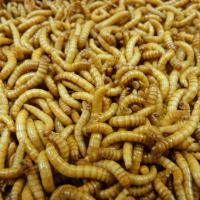- Home
- Special Offers
- New Products
- FAQs
- Customer Video Gallery
- Customer Photo Gallery
- Bird Facts
- Bird Food Blog
- Bird Information
- Feeding Advice
- Small Animal Information
- A to Z of Guinea Pigs
- A to Z of Hamsters
- A to Z of Rabbits
- Basic Care for Guinea Pigs
- Basic Care for Hamsters
- Basic Care for Rabbits
- Basic care for Chinchillas
- Basic care for Ferrets
- Basic care for Gerbils
- Basic care for Mice
- Basic care for Rats
- Buying a Healthy Small Animal
- Does your Reptile need a Licence
- Equipment for Ferrets
- Equipment for Hamsters
- Equipment for Mice
- Equipment for your Chinchilla
- Equipment for your Gerbil
- Equipment for your Guinea Pig
- Equipment for your Rabbit
- Keeping a House Rabbit
- Dog Information
- Cat Information
- Customer Information
- Bird Food
- Small Animals Food
- Pond Fish Food
- Dog Food
- Cat Food
- My Account
| Tweet |

|
Does your Reptile need a Licence
It is illegal to keep certain animals without a special licence, so beware of what you’re buying!
The decision to buy a pet is a big one and should never be taken lightly whether you’re considering giving a home to one small gerbil or a family pony. But not many people ask themselves whether they’re breaking the law just by keeping a pet. Some species are not suited to a life of domesticity and if you fall foul of the law that governs keeping these animals, you could face a fine of up to £5,000.
The Dangerous Wild Animals Act of 1976 states that no-one is allowed to keep an animal specified in the Act unless they hold a licence granted by a local authority.
What the Act says
Many animals are listed in the Act including bears, big cats and alligators. Most people would immediately recognise these as dangerous and it’s extremely unlikely you’d ever be offered an alligator in a pet shop or see a bear advertised for sale.
Television advertising may have led some people to think a chimpanzee would make a great playful pet – but did you know it’s illegal to keep a chimp without a licence? It is also difficult for an inexperienced person to recognise a dangerous snake or lizard and, unfortunately, some of the most beautiful are also the most deadly.
Be aware
Avoid problems by buying from a reputable source such as a specialist pet shop or recognised exotic pet breeder. They should be able to give expert advice about any special precautions you need to take regarding care and whether or not you will need a licence.
The key to staying on the right side of the law is to check and double check. Make sure you know the full breed name of your new pet and, if you’re in any doubt, don’t buy until you’ve checked with your local authority (ask for the environmental heath department). They have a full list of animals specified in the Act and will be able to tell you whether you need a licence.
Animals included in the Act:
Snakes
Lizards
Spiders
Scorpions
Applying to keep a dangerous animal
You must apply to your local authority (either district council or London borough) for a licence and state the species of animal you’d like to keep. The application form also asks for the number of animals you intend to have and the address at which they will be kept.
The authority will instruct a veterinary surgeon to visit your premises and inspect your facilities. He will check the size, temperature, lighting, ventilation, drainage and cleanliness of the accommodation and, of course, that the animal cannot escape. He will also make sure you have made adequate provision for the animal to get enough exercise. Only then will the authority decide whether or not to grant a licence.
Facts about the Dangerous Wild Animals Act 1996:

The decision to buy a pet is a big one and should never be taken lightly whether you’re considering giving a home to one small gerbil or a family pony. But not many people ask themselves whether they’re breaking the law just by keeping a pet. Some species are not suited to a life of domesticity and if you fall foul of the law that governs keeping these animals, you could face a fine of up to £5,000.
The Dangerous Wild Animals Act of 1976 states that no-one is allowed to keep an animal specified in the Act unless they hold a licence granted by a local authority.
What the Act says
Many animals are listed in the Act including bears, big cats and alligators. Most people would immediately recognise these as dangerous and it’s extremely unlikely you’d ever be offered an alligator in a pet shop or see a bear advertised for sale.
Television advertising may have led some people to think a chimpanzee would make a great playful pet – but did you know it’s illegal to keep a chimp without a licence? It is also difficult for an inexperienced person to recognise a dangerous snake or lizard and, unfortunately, some of the most beautiful are also the most deadly.
Be aware
Avoid problems by buying from a reputable source such as a specialist pet shop or recognised exotic pet breeder. They should be able to give expert advice about any special precautions you need to take regarding care and whether or not you will need a licence.
The key to staying on the right side of the law is to check and double check. Make sure you know the full breed name of your new pet and, if you’re in any doubt, don’t buy until you’ve checked with your local authority (ask for the environmental heath department). They have a full list of animals specified in the Act and will be able to tell you whether you need a licence.
Animals included in the Act:
Snakes
- Mole vipers
- Sand snakes
- Montpellier snakes
- Yellow ringed catsnake (mangrove)
- Boomslang
- Keelback
- Japanese tiger-snake
- Cobras
- Coral snakes
- Desert black snake
- Kraits
- Mambas
- Sea snakes
- All Australian poisonous snakes
- Adders
- Barba amarilla
- Bushmaster
- Copperhead
- Fer-de-lance
- Moccasins
- Rattlesnakes
- Vipers
Lizards
- Gila monster
- Mexican bearded lizard
Spiders
- Sydney funnel-web spider
- Brazilian wolf spider
- Violin spiders
- Black widow spider (redback)
Scorpions
- Buthid scorpions
Applying to keep a dangerous animal
You must apply to your local authority (either district council or London borough) for a licence and state the species of animal you’d like to keep. The application form also asks for the number of animals you intend to have and the address at which they will be kept.
The authority will instruct a veterinary surgeon to visit your premises and inspect your facilities. He will check the size, temperature, lighting, ventilation, drainage and cleanliness of the accommodation and, of course, that the animal cannot escape. He will also make sure you have made adequate provision for the animal to get enough exercise. Only then will the authority decide whether or not to grant a licence.
Facts about the Dangerous Wild Animals Act 1996:
- You must be at least 18 years old to apply for a licence
- Before you apply for your licence, you must have insurance that covers you against liability for any damage that your dangerous animal may cause
- It costs around £65 to apply for a licence, but this varies between local authorities -you also have to pay an additional fee for the vet to visit your premises
- Once granted, you can choose whether your licence runs until the end of the calendar year in which it was issued or from the beginning of the following year until the end of that year - the licence has to be renewed annually
- If you keep a dangerous animal without a licence, or have contravened any condition of its terms, the local authority can gain entrance to your premises, remove the animal, have it destroyed and reclaim the costs from you
- If you are found guilty in court of keeping a dangerous wild animal without a licence, you can be banned from keeping wild animals for as long as the court thinks fit












